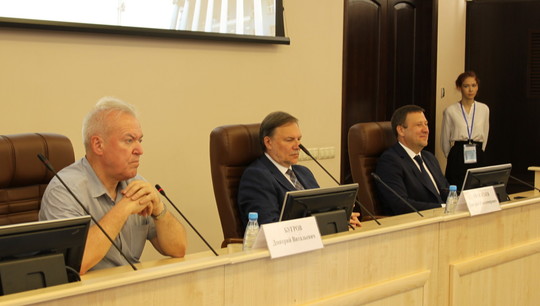Report Shows International Students Wishing To Study In Russia Is Growing
Dmitry Afanasiev, Deputy Minister of Science and Higher Education of the Russian Federation, and Pavel Shevtsov, Deputy Head of the Federal Agency for the Commonwealth of Independent States, Compatriots Living Abroad, and International Humanitarian Cooperation (Rossotrudnichestvo), met with representatives of universities in the Urals region. The meeting focused on the details of this year’s enrollment campaign, the opportunities for attracting international students to Russia, and the work of universities in this area.
“We are in a difficult international situation: a serious ideological and information machine is working against us abroad, and stereotypes persist among foreigners. Therefore, we have to do a huge information work, and here the help of universities will be significant, because you have many counterparts – reasonable people with higher education, who should be involved in the process of dispelling myths about our country,” said Pavel Shevtsov.
At the same time, the quotas of Rossotrudnichestvo are full: students from various countries want to come to Russia to study. Thus, according to Shevtsov, the number of students who registered in a personal account at the organization’s portal increased by 6,000 compared to last year and amounted to 98,000 people, 58,000 of whom passed the tests. They are students from the Middle East, North America, Europe, the CIS and Asia. In total, students from 175 countries are interested to study in Russia.
Among the main beneficiaries of quotas are Belarus, Kazakhstan, Vietnam, China, Tajikistan, Kyrgyzstan, Syria and others. For example, the number of quotas for Belarus increased from seven to 1,300 in four years. Quotas were also increased for Africa (twice), America (33%), Asia (25%), the Middle East and CIS (26% each), and Europe (16%).
UrFU also tries to develop international cooperation and attract international students. This year the university has 4,600 international students from 100 countries. According to the rector Victor Koksharov, the university is ready to continue working in this direction – we are talking about exchange programs, double diplomas and support for talented students. This is especially true now that the infrastructure is being expanded with the opening of the new campus.

